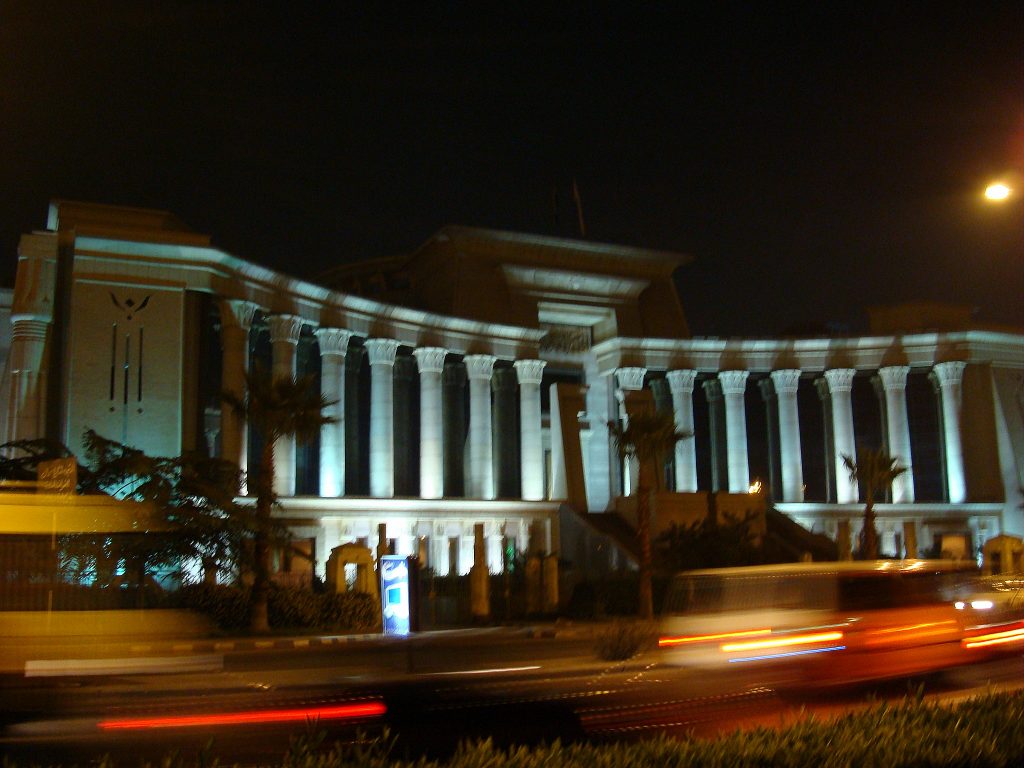
On March 1, an anonymous parliamentarian from the Muslim Brotherhood’s Freedom and Justice Party revealed new details on the timeline and procedures for forming Egypt’s 100-member constituent assembly, a body that is bound by the military-decreed interim constitution to draft the country’s new charter. The Constitutional Declaration issued by the ruling Supreme Council of the Armed Forces (SCAF) last March gave Egypt’s parliament the right to select the committee’s members.
But now that Islamist parties hold a combined 75 percent of the seats in the People’s Assembly and 83.3 percent in the Shura Council (upper house), liberal and secular political forces are becoming increasingly concerned that the members of the committee and the content of the document they produce will be dominated by the FJP and even more conservative Salafi Nour Party, at the expensive of weaker political parties, women, and religious minorities.
The FJP is working quickly to expedite the constitutional process, which will start with a joint session of the upper and lower houses on March 3. The party is preparing to propose the formation of a 30-member committee tasked with devising the mechanism for selecting the 100 members of the assembly (still a mystery), and these procedures will be subject to a vote of both houses on March 10. Finally, members of both houses of parliament will vote and decide on the members of the committee in a final session on March 17.
Sixteen days is not a lot of time to reach consensus on the political and ideological composition of a committee that bears that weighty task of rewriting Egypt’s legal framework and social contract. But the question is not whether parliament can feasibly agree upon the 100 members in less than three weeks, but whether or not the resulting committee will be broadly viewed as legitimate and representative of Egypt’s broad spectrum of political and social forces. When I visited Cairo in late January, Egyptians of all political and religious stripes were already expressing concern about the potential for polarization and conflict over the selection and makeup of the constituent assembly, even before the most controversial and sensitive work of drafting a new constitution gets underway.
Before Egypt’s political forces can reach a consensus on the most important and potentially divisive issues that must be resolved in the constitution – the role of the military; the balance of power between parliament and the executive branch; and the rights of minorities – they face an equally formidable challenge: How will parliament choose a balanced and representative constituent assembly when both houses of the legislature are overwhelming dominated by Islamists? For starters, the FJP has suggested that the committee be comprised of 40 MPs, 30 legal and constitutional experts, and 30 members chosen from outside parliament.
But critics of the proposal have already complained that the 40 percent threshold for parliamentarians is too high, and would marginalize liberals, women and religious minorities, who are all under-represented in the elected legislature. Some groups are calling for minority quotas to guarantee that minorities and women are not excluded from the committee: On March 1, the Egyptian Alliance for Women demanded that women hold at least 30 percent of the seats on the constituent assembly. Meanwhile, the General Coptic Association has stated that Christian representation in the constituent assembly should be commensurate with their percentage of the population (15-20 percent), not their share of parliamentary seats. But will quotas be viewed as an undemocratic corrective to the results of free and fair elections? Will the concerns of under-representative minorities be dismissed as the whinings of sore losers who failed to persuade voters?
As minority political and religious forces prepare to challenge the Muslim Brotherhood and stake claims to representation on the committee, the stage is set for a polarizing debate over the future of Egypt’s legal framework and national identity itself. When I visited Cairo in late January, Egyptians of all political and religious stripes were already concerned that the upcoming debates over Egypt’s constitution could further divide rather than unify Egypt’s diverse social forces. Legal experts weren’t the only ones worried about the constitutional process and its polarizing potential. Mohamed Taha, the taxi driver who drove me to a meeting at the Supreme Constitutional Court, was just as attuned to the lack of consensus as members of the judiciary with whom I spoke. In this excerpt of video interview (Arabic), Mr. Taha said he hoped to see a new president elected before the completion of the constitution, to allow the necessary time for an inclusive dialogue engaging all political and religious groups. At the time, it still appeared that the SCAF would try to fast-track the constitutional process to finalize the charter before the transfer of power to civilians, “to protect themselves from being held accountable.”
Now, with the date of the presidential election moved up to May 23-24, that troubling scenario – which would increase the likelihood of military intervention in the constitutional process – thankfully looks less plausible with every passing day. But the challenge of negotiating a consensus among diverse and increasingly antagonistic political forces over the makeup of the constituent assembly and the charter it produces is just as monumental – if not more so – than it was before the SCAF agreed to accelerated the elections timetable.
As Mr. Taha warned, “The problem with the political parties is that they all want a piece of the pie.” Each is looking out for their own interests rather than working toward the compromise and consensus needed to formulate a constitution that is accepted by all.
Mara Revkin is the assistant director of the Rafik Hariri Center for the Middle East and editor of EgyptSource. She can be reached at mrevkin@acus.org.
Photo Credit: Alaeddin Faruki
Interview Transcription: Courtesy of Tarek Radwan
Image: 5646305.jpg
